The recent controversy involving Jude Bacalso, an LGBTQ+ advocate based in Cebu, has sparked a significant debate about gender sensitivity and public conduct. The core of the issue is a viral photo showing Bacalso in an interaction with a restaurant waiter at Ulli’s Streets of Asia. While Bacalso intended to discuss gender sensitivity, the incident has regrettably become a platform for widespread transphobic remarks and generalized criticisms of the LGBTQIA+ community.
The photo in question depicts Bacalso and the waiter during what some perceived as a tense moment. Bacalso later clarified that her interaction was intended to be educational rather than confrontational. She stated that she merely offered the waiter a chance to sit down and discuss gender sensitivity, and her approach was calm and respectful. Despite her efforts to de-escalate the situation and her apologies for any misunderstandings, the incident quickly became fodder for broader, harmful generalizations.
Instead of focusing on the nuances of Bacalso’s attempt to address gender sensitivity, the public discourse has largely shifted to transphobic commentary. The backlash has seen individuals using this isolated incident as an excuse to make sweeping, derogatory statements about the entire LGBTQIA+ community. Such responses not only distract from the core issue but also perpetuate negative stereotypes and reinforce harmful biases.
The spread of transphobia in reaction to this incident highlights a troubling trend where individual actions are used as a pretext to validate broader prejudices. Comments attacking Bacalso’s identity and intentions have escalated into generalized attacks on LGBTQIA+ individuals, framing them as inherently problematic or demanding. This approach not only fails to recognize the diversity within the community but also perpetuates harmful stereotypes that further alienate LGBTQIA+ individuals from mainstream acceptance.
This generalization is not just unfair—it’s damaging. By reducing an entire community to the actions of one person, we overlook the complexity and richness of individual experiences within the LGBTQIA+ community. Such reactions prevent meaningful dialogue about gender sensitivity and inclusivity, leaving underlying issues unaddressed and reinforcing a culture of intolerance.
The backlash against Bacalso also reflects a broader societal discomfort with discussions about gender identity. Instead of engaging in thoughtful, respectful conversations about gender sensitivity, many have opted for derogatory and exclusionary rhetoric. This shift in discourse not only undermines efforts to foster understanding but also creates an environment where LGBTQIA+ individuals are more likely to face hostility and marginalization.
To move forward constructively, it is essential to focus on the core issues of gender sensitivity and respect. Rather than using individual incidents to perpetuate discrimination, we should seize these opportunities to educate and build empathy. This approach involves confronting transphobia directly and rejecting generalizations that harm entire communities.
For the LGBTQIA+ community, it is crucial to continue advocating for respectful treatment and understanding, while also acknowledging the complex dynamics of public discourse. Allies and advocates must strive to challenge transphobic remarks and promote a more nuanced and empathetic dialogue about gender and identity.
In conclusion, the Bacalso incident serves as a reminder of the dangers of transphobia and the harm caused by unjust generalizations. By focusing on constructive engagement and understanding, we can work towards a more inclusive and respectful society for everyone. It is through empathy and informed dialogue that we can address gender sensitivity issues and build a more accepting world for all individuals.
Other POP! stories you might like:
[Commentary] Educating about people’s pronouns truly matters, but it shouldn’t be done this way
Twitter buzzes over viral restroom photo featuring an LGBTQIA+ inclusive signage
First ever Filipino LGBTQIA+ community app, Thundr, makes a fabulous debut


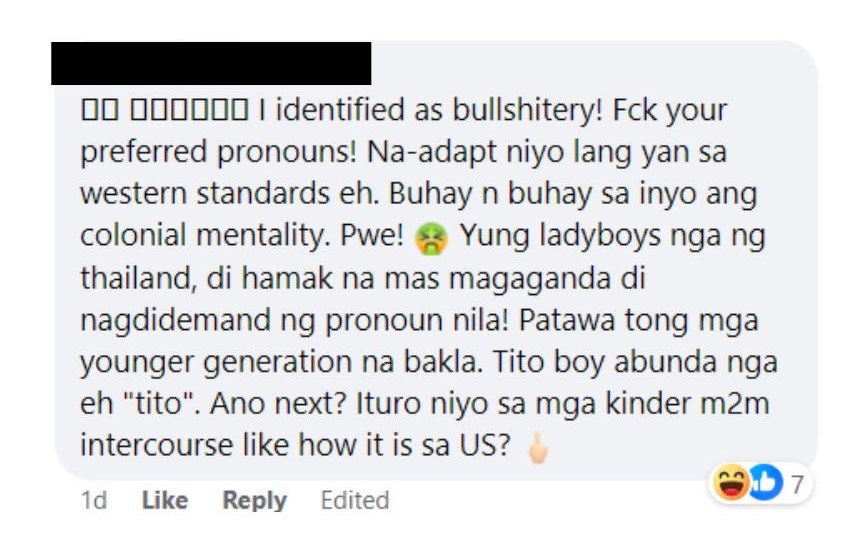
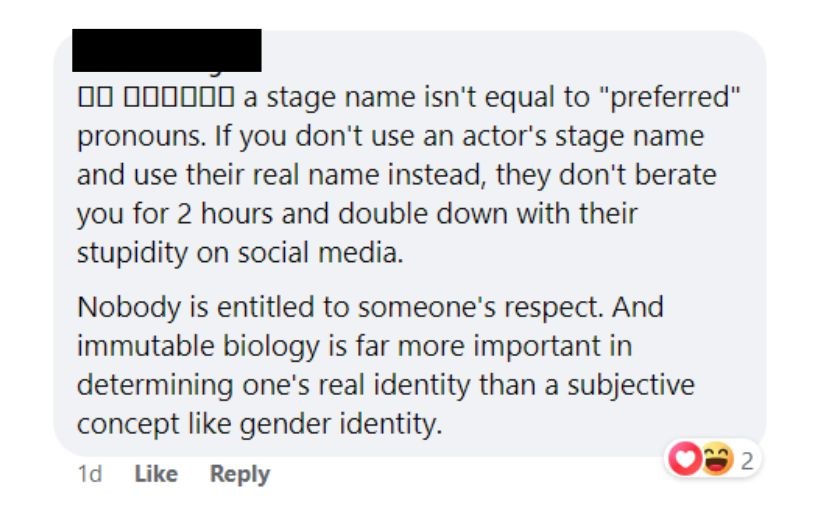



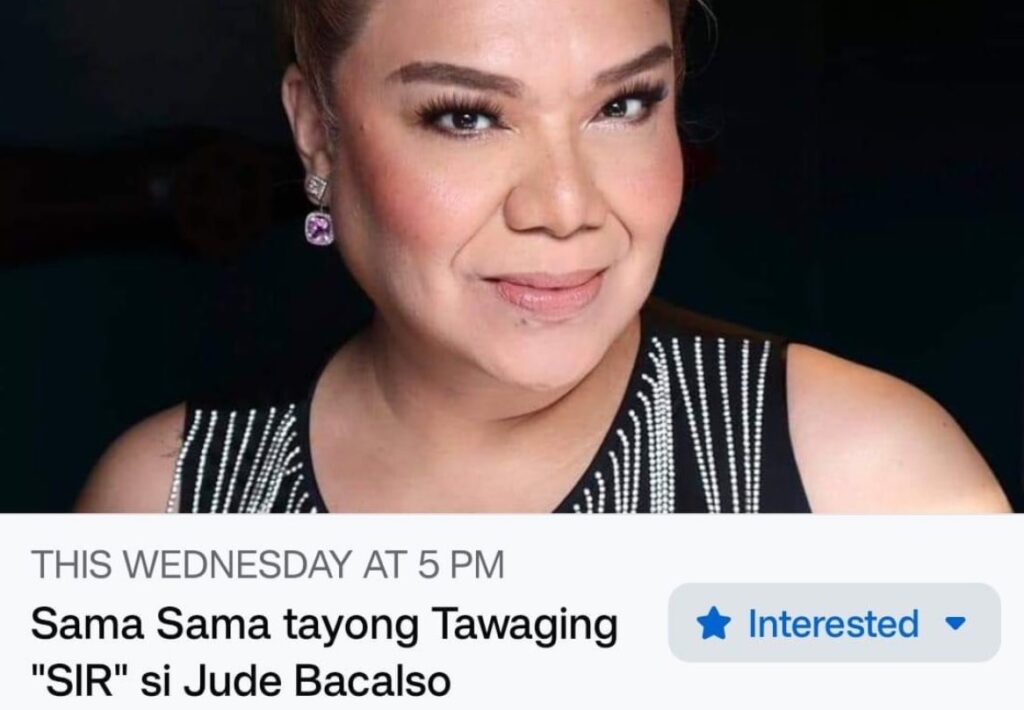
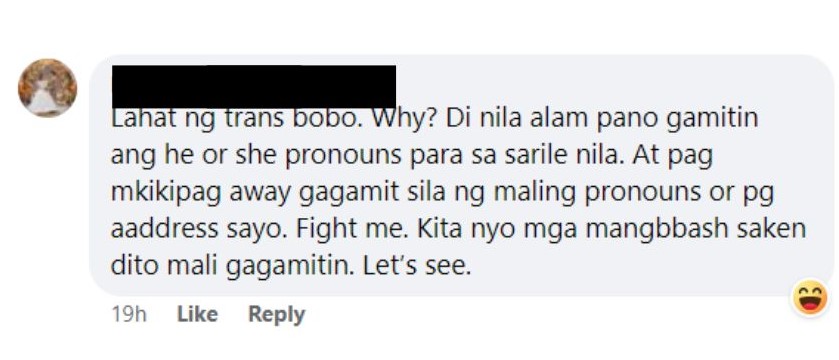
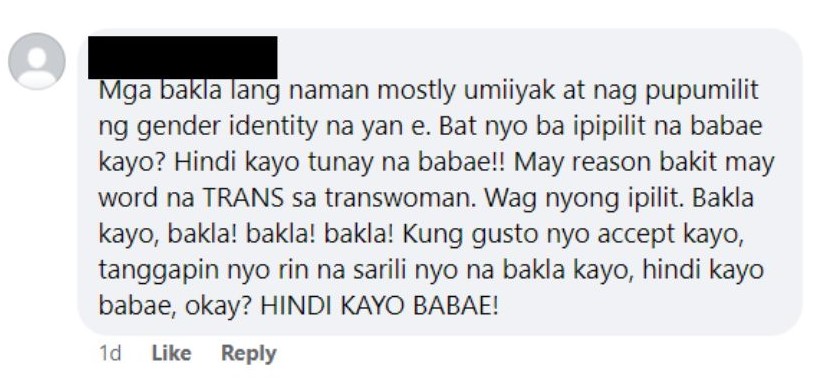
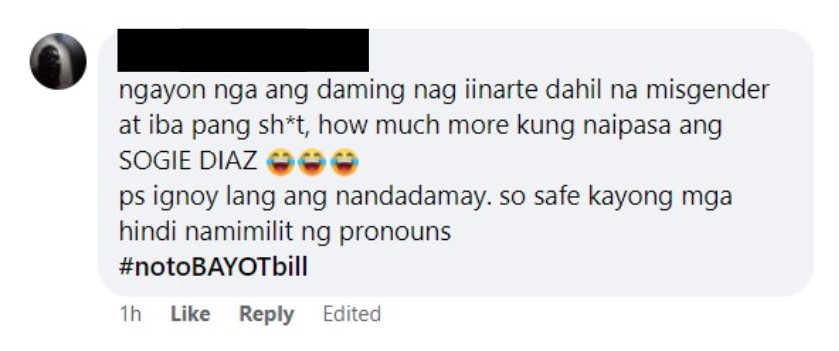
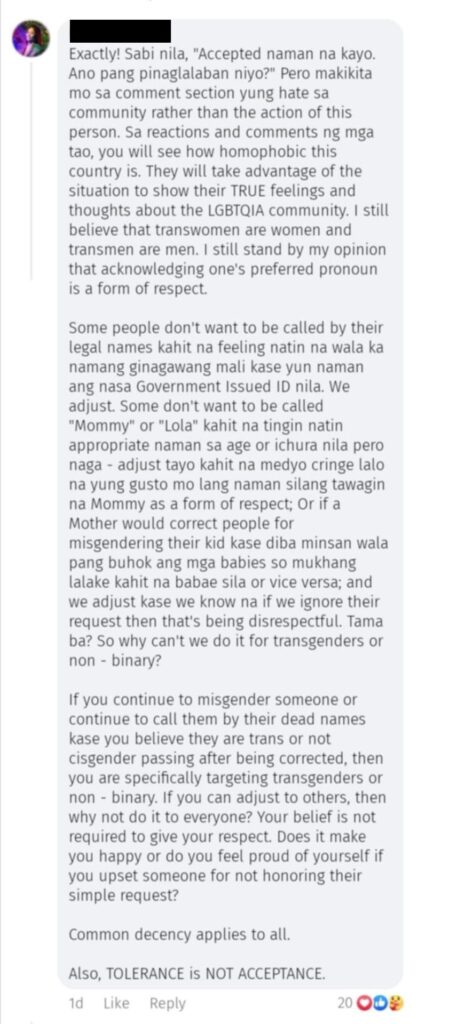

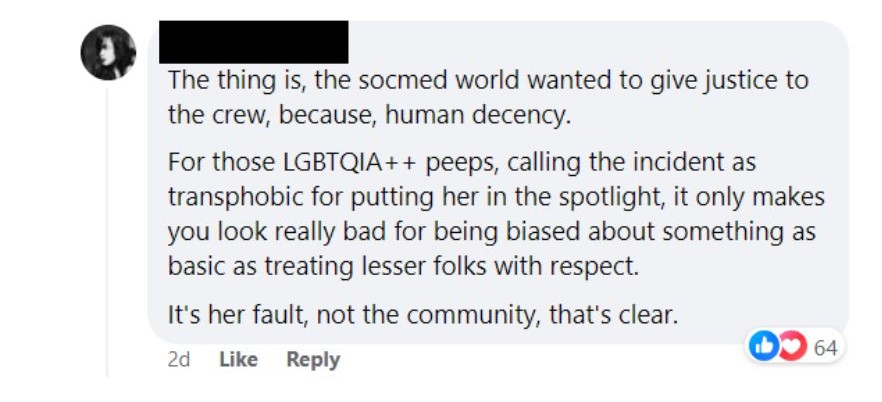
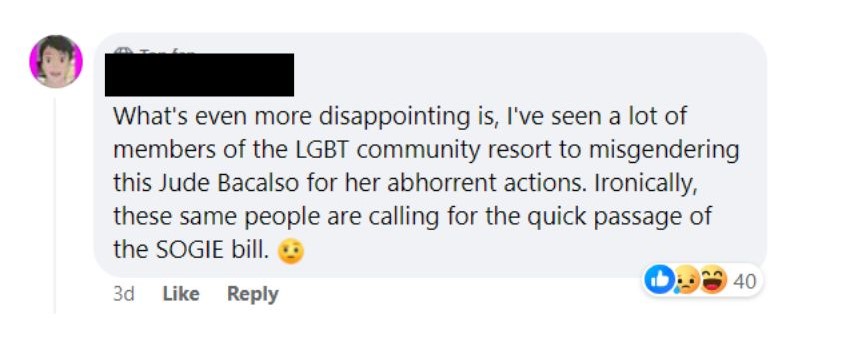

![[Commentary] Bacalso’s misgendering issue doesn’t grant a ‘free pass’ for transphobic remarks](https://pop.inquirer.net/files/2024/07/New-trend-Online-influencer-slammed-for-stealing-photos-and-taking-credit-for-others-charity-efforts-150x150.jpg)